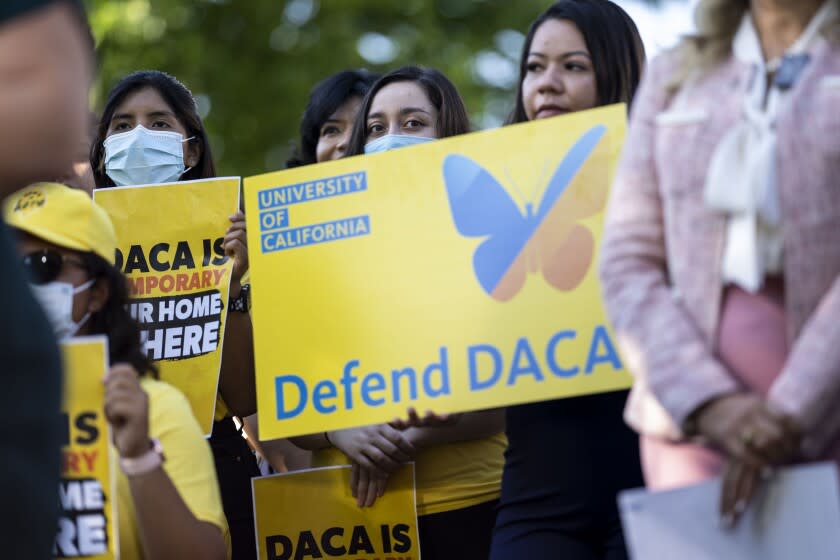Letters to the Editor: The unconscionable suffering of 'Dreamers' unprotected by DACA

To the editor: What a waste of young life. That was the impression I received after reading your article on the youngsters who missed the cutoff for eligibility in the Deferred Action for Childhood Arrivals program and Jean Guerrero's op-ed column on the status of DACA.
Maximizing human potential is a guiding principle in our society, and it is especially so for education and business. But that laudable objective is cast aside when it comes to children who find themselves in circumstances largely beyond their control.
Instead, we hear about a college graduate with a biochemistry degree who cannot pursue her dream of being a scientist because of her immigration status. Her story is all too common. These achievements call to mind the Greek myth of Sisyphus, condemned forever to roll a boulder up a hill, only to have it roll back down each time he gets to the top.
Some argue for protection of the rights of a fetus before viability. Much more compelling is the plea to protect living, ambitious, talented youngsters from deportation, so as to allow them the chance of a life of contribution to a country they love, but which doesn't appear to love them back.
Agustin Medina, South Pasadena
..
To the editor: Ten years on, DACA has worked relatively well, and its many participants have benefited greatly due to the generosity of American taxpayers.
Before extending or expanding the program, perhaps we should seriously consider how many of the beneficiaries could help their native countries. Both the U.S. and the countries of origin should offer generous incentives for DACA participants to return and use their education in the U.S. to help address the root causes driving people to move to the U.S. illegally.
DACA could be extended in exchange for an agreed-to number of people returning to their countries of origin.
Millions of people have immigrated to the U.S., even at advanced ages, and have done very well adapting to their new environment, even without the benefit of an education equal to that afforded to many "Dreamers." A less-than-perfect compromise is desperately needed to help all of the stakeholders.
Mark Sielen, Long Beach
This story originally appeared in Los Angeles Times.

